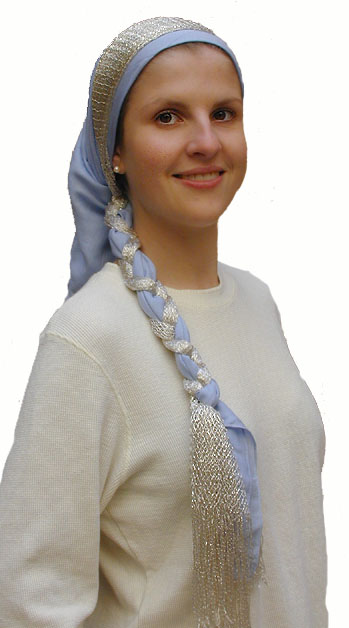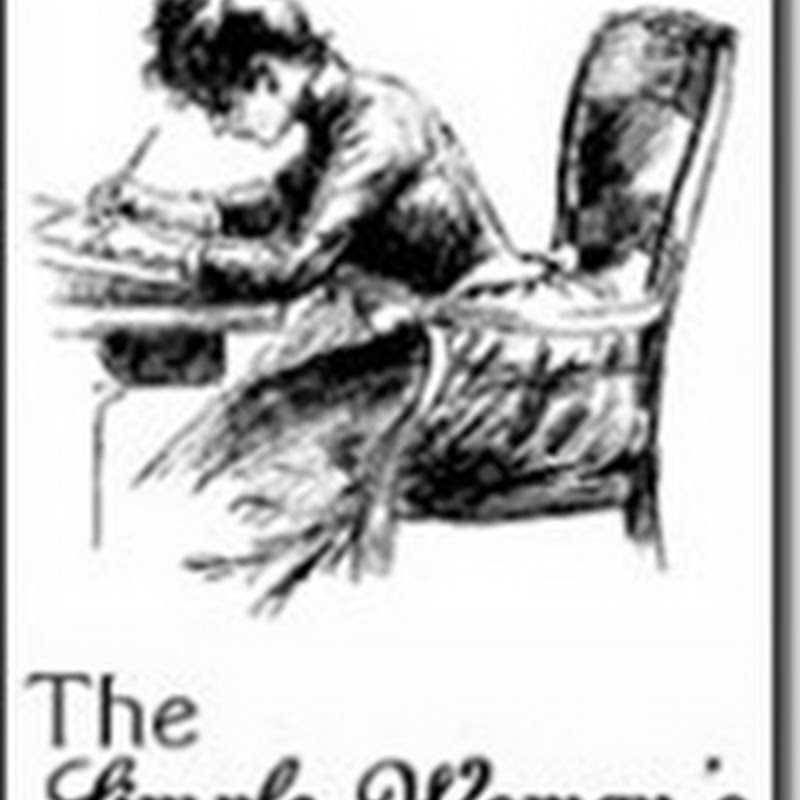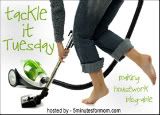Yes I know this is late, I have had a very busy and profitable week but it has also been a week without the internet. I have missed it alot and really wanted to blog for my friday so here it goes.
I know some ladies wear headcoverings and some do not. I am one who does wear one and I have struggled with it. It is not something that I talk about with many people because I am doing this because I believe it is the correct thing to do but some days I just want to leave it off and do my hair.
Proper hair care is important.
Brushing also causes a good deal of abrasion, which strips the cuticle from the hair shaft, causing hair breakage and split ends. A smooth cuticle allows your comb and brush to glide through your hair, eliminating tangles. Leave-in natural conditioning vitamin treatments and detanglers such as Infusium 23 help by penetrating each hair shaft to correct damage, then restructures and smoothes the hair cuticle, giving it extra protection. Many of us have heard that one should brush one's hair 100 times every night before bed to make it shiny and manageable. In the days of weekly baths and crude soaps this was good advice since brushing so many strokes disperses the natural oils and removes some of the excess oil and dirt. Now people shower more often and have numerous conditioning products to choose from, so this practice is no longer necessary. It is normal to lose 50-100 hairs a day. Be sure to choose a brush designed for your hair length, thickness, and texture.
Always use a natural bristle brushes made from boar or other natural, non-synthetic or petroleum materials. Many people use brushes and combs made from harsh chemicals and synthetic matericals that are petrolleum based which irritate the scalp and cuticle. It is also very important to make sure that your combs are handmade and NOT made from a poured mold with a seam along the teeth edges and made from natural cellolose acetate that does not irritate the scalp. Combs are usually pressed in a plastic processing machine in thousands. This machine creates a comb by putting two molding units together and pressing plastic into it. A side effect is that in the middle, between the units, a small rand still remains. This is usually just in the middle of the flat side of a comb, and hence also between each comb tooth. When you comb your hair, and you try to get beyond a tangle with force, your comb or brush works like a knife cutting or scratching your hair. Good combs and brushes are expensive, as most of them need to be post-processed by hand. Handmade combs are cut with handsaws and the teeth are polished so that they are smooth enough to slide easily through the hair resulting in easy combing without snags, pulls and irritation to the cuticle. A cheaper solution is to buy a wide toothed comb, take out your nail-file, and post-process the comb yourself. Use the file between the tooth and around the top of each tooth to get off that sharp rand. Polish afterwards with the smoothest/fine side of the file.
The biggest contributor by far to hair damage is the act of shampooing. Eliminating this practice is obviously not the solution, however! Understanding how and why it damages your hair makes it easier to reduce the negative effects. We are a nation of frequent shampooers; the average number of weekly shampoos a week has risen to five with more than 40% of women shampooing daily. In addition, the act of shampooing, which includes vigorous massaging and scrubbing with your fingers or scrubber, causes abrasion to hair when it is most vulnerable to damage. When washing, gently rub your scalp with the ball of your fingers in a circular motion. Water disrupts the hydrogen bond in hair, making it weaker than dry hair. Research shows that you hair is three times weaker when it is wet than when it is dry, making is much more vulnerable to stretching, breaking, and developing split ends. The combination of wet and tangled is a perfect setup for damage. So it is important to treat wet hair with extra TLC when combing and scrubbing. Do not comb your hair when it is wet, and only use large tooth combs and picks to put wet hair into place.
Be careful of using products that are not natural on the hair. Styling products, permanent waves and other chemicals cause severe damage by reducing and breaking disulfide bonds between protein amino acids (which help keep our hair strong). Allergic reactions to chemicals in many hair care products occur frequently. Always alternate your shampoos among several different all-natural shampoos that are pH-balanced. Most of the chemical-laden shampoos people use are partially responsible for hair damage. Foaming and cleansing agents known as "surfactants" some disguised under two names, "SODIUM LAURYL SULFATE" and "SODIUM LAURETH SULFATE." Unfortunately the commonly used foaming agent and emulsifier, sodium lauryl sulfate, is the harshest chemical. By mixing harsh shampooing with skin irritants the stage is set for not only unhealthy hair and scalp but an unhealthy skin condition as well. The second agent, sodium laureth sulfate, which is common in water softeners and baby shampoos, is a leading cause of dermatological problems such as dandruff, irritated skins, rashes, and inflamed skin itches. These abrasive chemicals overly strip hair of natural oils, setting up a cycle that dooms hair and scalp to dryness. Though hair may appear fuller and healthier this will not last for long. Dry hair soon weakens and breaks leaving you with less hair, dry and damaged ends that split, and a dry, flaky, and itchy scalp. Commonly present in most personal soaps and toothpaste, this cleanser is not only harsh on the hair but it is irritating to the scalp and skin. These chemicals are used in testing labs as a standard skin irritant to test the healing properties of other ingredients. Industrial uses for them include garage floor cleaners, engine degreasers, and car wash soaps. PROPYLENE GLYCOL is commonly found in baby wipes, lotions, cosmetics, facial creams, hair conditioners, and deodorants. Labeled as "humectant" in personal care products, this chemical is actually "industrial antifreeze" and a major ingredient in brake fluid, with warnings to avoid skin contact and health related cautions. DEA (diethanolamine) based cleansers are commonly found in shampoos, bubble baths, lotions, shower and bath gels, hand soaps, dishwashing and laundry soaps and other cleaners. For protection during shampooing, choose a vitamin or herbal shampoo and/or conditioner without harsh detergents or chemicals.
A smooth cuticle allows your comb and brush to glide through your hair, eliminating tangles. Leave-in natural conditioning vitamin treatments and detanglers such as Infusium 23 help by penetrating each hair shaft to correct damage, then restructures and smoothes the hair cuticle, giving it extra protection. If you can stand it, most hair dressers that handle long hair suggest that the last hair rinse be a cold one. This shrinks the molecules of the hair, closes and smoothes the cuticle, and gets rid of superfluous coatings, making hair much more manageable.
Apply a deep conditioning hot oil treatment once a week to your hair. To do so, wet your hair with warm water. Warm a small amount of olive oil and apply to the scalp; work well through the hair to the ends. leave oil in hair for 5-10 minutes and then shampoo well. Mixing Tea Tree Oil with the olive oil mixture is very healthful and stimulating to the scalp. You may also choose to use essential oils like lavender, rosemary, geranium, or sandalwood with lubricating oils such as jojoba or peach kernel to restore deep moisture to your hair. For intensive treatment: After applying oil, wrap head in a warm damp towel that has been dipped in hot water and wrung out, and then in a large shower cap in order to prevent loss of heat. When the towel cools down, rewet it with hot water. Leave on for 20 minutes and then shampoo well.
Preventing tangles while you sleep is an important part of protecting your hair from damage. First brush (straight hair) or comb (curly hair) before you go to sleep. Satin pillow cases provide the greatest protection from frizz and tangles while sleeping. The hair can slide easily over the satin and does not tangle as much as with a wool cover sheet. As soon as your hair is long enough (waist length and longer) you can place it behind your head to get it out of the way - regardless of you rolling around, it will stay there due to its weight and length. Some ladies make a ponytail or a braid which helps to keep the hair out of your way. Make sure that it is a loose braid, don't tighten it. If you find out that you get a headache, damp you hair before you braid it and braid it upwards (not toward your waist). This prevents pain resulting from the fact that all hair is used to bend in the opposite direction and the scalp becomes irritated by the change of direction.
Sun is another element that contributes to hair damage. Ultraviolet rays break down proteins and cause dryness, unmanageability, and split ends. Just as the sun can burn skin, it can also dry out hair, leading to limpness and breakage. A hat or light colored opaque headcovering is the most effective way to protect your hair against the sun and stop UV damage. Using hair care products with sun protection factors (SPFs) can help prevent sun damage as well.
Chlorine and saltwater also contribute to the damage of hair, stripping and etching away at the natural bonds of protein. Hair is porous and will absorb chlorine unless you apply a barrier. Water quality is very important to your hair. There are a wide variety of results with different types of water. Hard water is harmful to the hair as well as salt and chlorine. Water out of the well will harm as well, if it contains too many minerals. Carbon water filter attachments are the best solution for reducing this damage in the shower. The most efficient way to protect your hair is to soak it in oil. Oil is hydrophobic (waterhating) and will therefore keep the water, and thereby chlorine and salt, away from your hair. Before swimming in chlorine-treated pools, wet your hair and coat it with a natural conditioner. It also has the additional benefit that you get a deep conditioning treatment while having fun. Another is to put lots of conditioner in your hair before going into the pool, that is for short stays, as the water will take the conditioner out of your hair. This also has the benefit of a deepconditioning treatment. If you have forgotten either of these remedies, then make sure to soak your hair in fresh water, so it is saturated, which will hinder too much contact between chemicals and your sensitive hair. And make sure to pour fresh water over it again when you are done swimming. If your hair has turned green from chlorine, then dissolve two aspirins in lukewarm water and pour through your hair, keeping an extra bowl underneath, so it can be poured through a couple of times.
Do not use a hair dryer or other heated appliances on your hair. Blow drying causes a great amount of abrasion, which can strip the cuticle from the hair shaft, resulting in hair breakage and split ends. To further protect your hair against damage, avoid vigorous towel drying which can turn wet hair into a mass of tangles. Allow your hair to dry naturally and pat it dry with a towel if needed.
Now that you know how to take care of your hair what do you do when you are putting it up and covering it every day.
Well there are different ways to put your hair up. This website has many different ways to put your hair up. If you vary the way that you put up your hair it also helps avoid the headaches that can acompany wearing your long hair up all the time.
I know some ladies wear headcoverings and some do not. I am one who does wear one and I have struggled with it. It is not something that I talk about with many people because I am doing this because I believe it is the correct thing to do but some days I just want to leave it off and do my hair.
Proper hair care is important.
Brushing also causes a good deal of abrasion, which strips the cuticle from the hair shaft, causing hair breakage and split ends. A smooth cuticle allows your comb and brush to glide through your hair, eliminating tangles. Leave-in natural conditioning vitamin treatments and detanglers such as Infusium 23 help by penetrating each hair shaft to correct damage, then restructures and smoothes the hair cuticle, giving it extra protection. Many of us have heard that one should brush one's hair 100 times every night before bed to make it shiny and manageable. In the days of weekly baths and crude soaps this was good advice since brushing so many strokes disperses the natural oils and removes some of the excess oil and dirt. Now people shower more often and have numerous conditioning products to choose from, so this practice is no longer necessary. It is normal to lose 50-100 hairs a day. Be sure to choose a brush designed for your hair length, thickness, and texture.
Always use a natural bristle brushes made from boar or other natural, non-synthetic or petroleum materials. Many people use brushes and combs made from harsh chemicals and synthetic matericals that are petrolleum based which irritate the scalp and cuticle. It is also very important to make sure that your combs are handmade and NOT made from a poured mold with a seam along the teeth edges and made from natural cellolose acetate that does not irritate the scalp. Combs are usually pressed in a plastic processing machine in thousands. This machine creates a comb by putting two molding units together and pressing plastic into it. A side effect is that in the middle, between the units, a small rand still remains. This is usually just in the middle of the flat side of a comb, and hence also between each comb tooth. When you comb your hair, and you try to get beyond a tangle with force, your comb or brush works like a knife cutting or scratching your hair. Good combs and brushes are expensive, as most of them need to be post-processed by hand. Handmade combs are cut with handsaws and the teeth are polished so that they are smooth enough to slide easily through the hair resulting in easy combing without snags, pulls and irritation to the cuticle. A cheaper solution is to buy a wide toothed comb, take out your nail-file, and post-process the comb yourself. Use the file between the tooth and around the top of each tooth to get off that sharp rand. Polish afterwards with the smoothest/fine side of the file.
The biggest contributor by far to hair damage is the act of shampooing. Eliminating this practice is obviously not the solution, however! Understanding how and why it damages your hair makes it easier to reduce the negative effects. We are a nation of frequent shampooers; the average number of weekly shampoos a week has risen to five with more than 40% of women shampooing daily. In addition, the act of shampooing, which includes vigorous massaging and scrubbing with your fingers or scrubber, causes abrasion to hair when it is most vulnerable to damage. When washing, gently rub your scalp with the ball of your fingers in a circular motion. Water disrupts the hydrogen bond in hair, making it weaker than dry hair. Research shows that you hair is three times weaker when it is wet than when it is dry, making is much more vulnerable to stretching, breaking, and developing split ends. The combination of wet and tangled is a perfect setup for damage. So it is important to treat wet hair with extra TLC when combing and scrubbing. Do not comb your hair when it is wet, and only use large tooth combs and picks to put wet hair into place.
Be careful of using products that are not natural on the hair. Styling products, permanent waves and other chemicals cause severe damage by reducing and breaking disulfide bonds between protein amino acids (which help keep our hair strong). Allergic reactions to chemicals in many hair care products occur frequently. Always alternate your shampoos among several different all-natural shampoos that are pH-balanced. Most of the chemical-laden shampoos people use are partially responsible for hair damage. Foaming and cleansing agents known as "surfactants" some disguised under two names, "SODIUM LAURYL SULFATE" and "SODIUM LAURETH SULFATE." Unfortunately the commonly used foaming agent and emulsifier, sodium lauryl sulfate, is the harshest chemical. By mixing harsh shampooing with skin irritants the stage is set for not only unhealthy hair and scalp but an unhealthy skin condition as well. The second agent, sodium laureth sulfate, which is common in water softeners and baby shampoos, is a leading cause of dermatological problems such as dandruff, irritated skins, rashes, and inflamed skin itches. These abrasive chemicals overly strip hair of natural oils, setting up a cycle that dooms hair and scalp to dryness. Though hair may appear fuller and healthier this will not last for long. Dry hair soon weakens and breaks leaving you with less hair, dry and damaged ends that split, and a dry, flaky, and itchy scalp. Commonly present in most personal soaps and toothpaste, this cleanser is not only harsh on the hair but it is irritating to the scalp and skin. These chemicals are used in testing labs as a standard skin irritant to test the healing properties of other ingredients. Industrial uses for them include garage floor cleaners, engine degreasers, and car wash soaps. PROPYLENE GLYCOL is commonly found in baby wipes, lotions, cosmetics, facial creams, hair conditioners, and deodorants. Labeled as "humectant" in personal care products, this chemical is actually "industrial antifreeze" and a major ingredient in brake fluid, with warnings to avoid skin contact and health related cautions. DEA (diethanolamine) based cleansers are commonly found in shampoos, bubble baths, lotions, shower and bath gels, hand soaps, dishwashing and laundry soaps and other cleaners. For protection during shampooing, choose a vitamin or herbal shampoo and/or conditioner without harsh detergents or chemicals.
A smooth cuticle allows your comb and brush to glide through your hair, eliminating tangles. Leave-in natural conditioning vitamin treatments and detanglers such as Infusium 23 help by penetrating each hair shaft to correct damage, then restructures and smoothes the hair cuticle, giving it extra protection. If you can stand it, most hair dressers that handle long hair suggest that the last hair rinse be a cold one. This shrinks the molecules of the hair, closes and smoothes the cuticle, and gets rid of superfluous coatings, making hair much more manageable.
Apply a deep conditioning hot oil treatment once a week to your hair. To do so, wet your hair with warm water. Warm a small amount of olive oil and apply to the scalp; work well through the hair to the ends. leave oil in hair for 5-10 minutes and then shampoo well. Mixing Tea Tree Oil with the olive oil mixture is very healthful and stimulating to the scalp. You may also choose to use essential oils like lavender, rosemary, geranium, or sandalwood with lubricating oils such as jojoba or peach kernel to restore deep moisture to your hair. For intensive treatment: After applying oil, wrap head in a warm damp towel that has been dipped in hot water and wrung out, and then in a large shower cap in order to prevent loss of heat. When the towel cools down, rewet it with hot water. Leave on for 20 minutes and then shampoo well.
Preventing tangles while you sleep is an important part of protecting your hair from damage. First brush (straight hair) or comb (curly hair) before you go to sleep. Satin pillow cases provide the greatest protection from frizz and tangles while sleeping. The hair can slide easily over the satin and does not tangle as much as with a wool cover sheet. As soon as your hair is long enough (waist length and longer) you can place it behind your head to get it out of the way - regardless of you rolling around, it will stay there due to its weight and length. Some ladies make a ponytail or a braid which helps to keep the hair out of your way. Make sure that it is a loose braid, don't tighten it. If you find out that you get a headache, damp you hair before you braid it and braid it upwards (not toward your waist). This prevents pain resulting from the fact that all hair is used to bend in the opposite direction and the scalp becomes irritated by the change of direction.
Sun is another element that contributes to hair damage. Ultraviolet rays break down proteins and cause dryness, unmanageability, and split ends. Just as the sun can burn skin, it can also dry out hair, leading to limpness and breakage. A hat or light colored opaque headcovering is the most effective way to protect your hair against the sun and stop UV damage. Using hair care products with sun protection factors (SPFs) can help prevent sun damage as well.
Chlorine and saltwater also contribute to the damage of hair, stripping and etching away at the natural bonds of protein. Hair is porous and will absorb chlorine unless you apply a barrier. Water quality is very important to your hair. There are a wide variety of results with different types of water. Hard water is harmful to the hair as well as salt and chlorine. Water out of the well will harm as well, if it contains too many minerals. Carbon water filter attachments are the best solution for reducing this damage in the shower. The most efficient way to protect your hair is to soak it in oil. Oil is hydrophobic (waterhating) and will therefore keep the water, and thereby chlorine and salt, away from your hair. Before swimming in chlorine-treated pools, wet your hair and coat it with a natural conditioner. It also has the additional benefit that you get a deep conditioning treatment while having fun. Another is to put lots of conditioner in your hair before going into the pool, that is for short stays, as the water will take the conditioner out of your hair. This also has the benefit of a deepconditioning treatment. If you have forgotten either of these remedies, then make sure to soak your hair in fresh water, so it is saturated, which will hinder too much contact between chemicals and your sensitive hair. And make sure to pour fresh water over it again when you are done swimming. If your hair has turned green from chlorine, then dissolve two aspirins in lukewarm water and pour through your hair, keeping an extra bowl underneath, so it can be poured through a couple of times.
Do not use a hair dryer or other heated appliances on your hair. Blow drying causes a great amount of abrasion, which can strip the cuticle from the hair shaft, resulting in hair breakage and split ends. To further protect your hair against damage, avoid vigorous towel drying which can turn wet hair into a mass of tangles. Allow your hair to dry naturally and pat it dry with a towel if needed.
Now that you know how to take care of your hair what do you do when you are putting it up and covering it every day.
Well there are different ways to put your hair up. This website has many different ways to put your hair up. If you vary the way that you put up your hair it also helps avoid the headaches that can acompany wearing your long hair up all the time.
http://www.prayercoverings.com/pages/howtomakeabun.php
Ok our hair is up and now it is time to cover it. You can wear different types of coverings and they make some very feminine looking ones.












.jpg)


























































































3 comments:
Good lessons on hair care! Thank you for sharing all of this - when we cover it shouldn't just mean we're having a bad hair day. ;)
WOW that should have been my post!
Great ideas and tips for haircare! How important! Before I realized all about skincare I was just trying all kinds of stuff to stay young-looking (for as long as possible, LOL) and keep a glow. Now I use my olive oil soap after researching skin and it's made a dramatic difference.
P.S. What beautiful ideas for hair coverings! We're in an Old Order Mennonite community and I absolutely love seeing the ladies in their head coverings. They look so demure and and beautiful.
Post a Comment